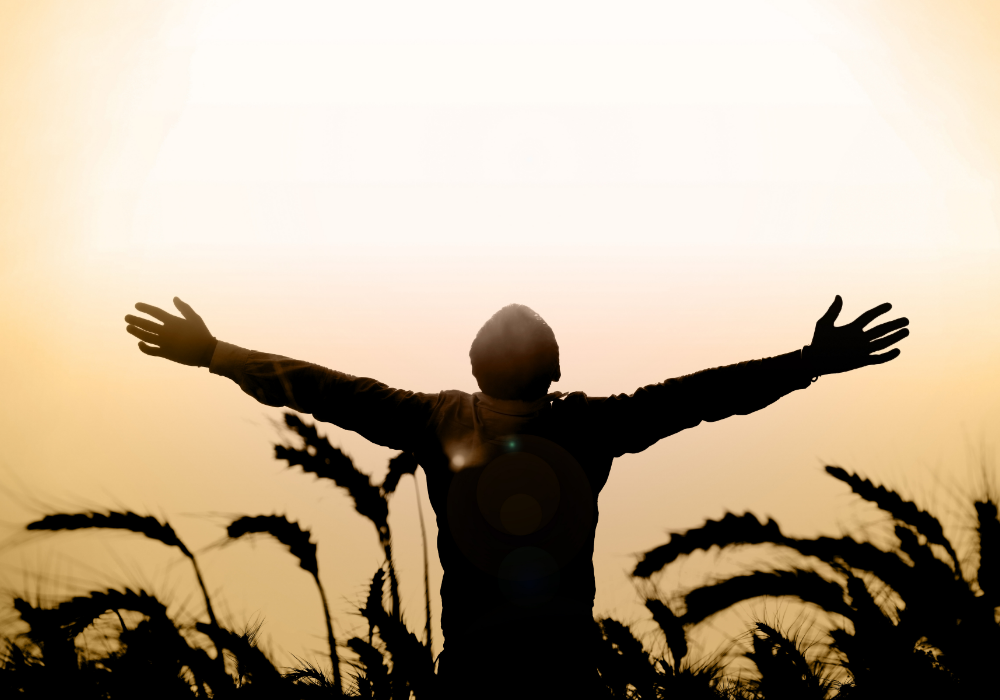Wisdom isn’t luck—it’s built, practiced, and surprisingly learnable.

Wisdom doesn’t come from a textbook or a life of perfect decisions. It usually comes from experience, reflection, and a willingness to learn the hard way. Contrary to what people think, you don’t have to be old, enlightened, or endlessly calm to be wise. You just need a few key habits that help you navigate life with more clarity, curiosity, and grace.
Wise people aren’t smarter or luckier—they’ve simply developed ways to think before they speak, learn from their mistakes, and stay grounded even when life gets messy. They don’t rush to judgment. They don’t cling to being right. And they definitely don’t let ego run the show. What they do instead is subtle but powerful—and it’s something you can absolutely start doing too. You don’t have to overhaul your entire personality to live with more wisdom. You just have to start where you are.
1. Wise people pause before reacting—even when emotions run high.

When something triggers you, the instinct is to react fast—lash out, shut down, defend yourself. But wise people know that slowing down is the real power move. They give themselves a moment (or more) to feel the emotion without becoming the emotion. According to John Amodeo for Psychology Today, pausing before reacting allows us to collect ourselves, understand our emotions, and respond thoughtfully, leading to more constructive outcomes in our interactions.
This doesn’t mean bottling things up or pretending to be unbothered. It means resisting the urge to let your feelings dictate your next move. Taking a pause—whether it’s a deep breath, a walk, or even just counting to five—gives your brain time to engage instead of explode.
2. Asking thoughtful questions shows more wisdom than having quick answers.

People often assume that wisdom means knowing everything—but the opposite is usually true. Those who come across as the most grounded and insightful are often the ones asking the best questions. They’re not trying to win arguments or sound smart. They’re genuinely curious. Instead of rushing to speak, they pause, listen, and ask for clarity before reacting.
This habit opens up better conversations, prevents misunderstandings, and builds trust. It also helps you learn more—about people, about situations, and about yourself. Research by Alison Wood Brooks for the Harvard Business School indicates that asking more questions in conversations can significantly increase your likability. You gain depth. Curiosity doesn’t show uncertainty—it shows confidence in your ability to grow.
3. Owning your mistakes helps you grow faster and bounce back stronger.

Everyone messes up. The real difference is what you do next. Instead of getting defensive, doubling down, or pretending it didn’t happen, wise people take responsibility without making it dramatic. They reflect, course-correct, and move on. Per Influence Magazine, leaders who own their mistakes create learning opportunities, earn respect, and foster trust within their teams.
When you treat mistakes like useful feedback instead of personal failure, you build resilience. You stop fearing every misstep and start trusting your ability to handle the fallout. That honesty strengthens relationships, builds self-respect, and speeds up growth.
There’s no ego battle, no spiraling—just a grounded response that says, “I got this wrong, and here’s what I learned.” That’s what real emotional maturity looks like. And it’s what makes wisdom feel steady, not fragile.
4. Letting go of control frees up your energy for what actually matters.

The more you try to control everything—people, outcomes, timing—the more stressed and disappointed you feel. Life just doesn’t work on your terms all the time, and trying to force it is a fast track to burnout. Wise people recognize this early and shift their focus toward what they can control: their attitude, reactions, and intentions.
That shift doesn’t mean giving up. It means choosing peace over pressure. You start responding instead of overreacting. You conserve energy instead of exhausting it. And you begin to notice how much lighter life feels when you stop gripping so tightly. Releasing control isn’t passivity—it’s clarity. And once you do it, you wonder why you ever held on so hard in the first place.
8. Making time for reflection helps turn experience into wisdom.

Going through things isn’t what makes you wiser—thinking about them afterward is. Wise people regularly carve out time to reflect on what’s happened, what they’ve learned, and how they’ve grown. They don’t just move from moment to moment. They pause, look back, and connect the dots.
Reflection doesn’t have to be dramatic or time-consuming. It can be five quiet minutes at the end of the day or a quick mental check-in after a conversation. The goal isn’t to obsess—it’s to understand. That space to process helps you see patterns, catch mistakes early, and notice what’s really working. Experience without reflection just becomes noise. But when you slow down to learn from what’s happened, you turn everyday life into a training ground for real wisdom.
9. Taking responsibility gives you power, not pressure.

Blaming other people is easy. But it also keeps you stuck. Wise people take responsibility—not for everything, but for what’s actually theirs. They don’t deflect. They don’t play victim. They step up and own their role, their impact, and their choices.
This kind of accountability isn’t about guilt or pressure—it’s about power. When you stop outsourcing responsibility, you take back control of your life. You become someone others trust because you’re honest, not slippery. You stop waiting for other people to change before you can move forward. And you learn how to grow from challenges instead of getting bitter about them. Wisdom means knowing what’s yours to carry—and being strong enough to carry it without drama.
10. Setting boundaries is how wise people protect their peace.

Being kind doesn’t mean being available 24/7. Wise people know that saying “yes” to everything eventually turns into resentment, exhaustion, or both. So they set clear boundaries—not to push people away, but to keep relationships healthy and sustainable.
A boundary isn’t a punishment. It’s a guideline. It tells people how to love you without crossing your limits. Whether it’s carving out alone time, limiting toxic conversations, or saying no to commitments that drain you, boundaries are how you stay grounded.
Wise people aren’t afraid to disappoint someone in the short term if it protects their long-term well-being. The more you practice this, the less chaotic your life feels. And the clearer your energy becomes for what really matters.
11. Surrounding yourself with grounded people keeps you from losing your balance.

You can’t always control who’s in your orbit—but you can choose who gets access to your energy. Wise people are intentional about who they keep close. They spend time with people who are calm, curious, honest, and growing—not just loud, entertaining, or convenient.
That doesn’t mean cutting everyone off. It means noticing who leaves you drained and who helps you feel more like yourself. Wisdom thrives in grounded environments. When you’re surrounded by people who challenge you gently, support you fully, and don’t fuel chaos, it’s easier to make good choices and stay steady. You reflect the energy you absorb—so choose wisely.
12. Living with intention helps you avoid autopilot regrets.

Life moves fast, and it’s easy to get swept up in habits, routines, and expectations that don’t actually align with who you are. Wise people resist the drift. They live with intention. They check in with themselves often and make small course corrections before things spiral.
Living with intention doesn’t mean having a five-year plan or controlling every detail. It means asking: Does this feel right? Is this helping me grow? Am I showing up how I want to? It’s about noticing the little moments instead of sleepwalking through them. The more intentional you are, the less likely you are to look back with regret. Wisdom isn’t a destination—it’s how you choose to move, day by day.
13. Staying grounded in uncertainty is where real wisdom shines.

Anyone can feel calm when things are easy. But wise people know how to stay grounded when everything feels up in the air. They don’t collapse under uncertainty—they work with it. They breathe through the discomfort, ask better questions, and remind themselves that chaos doesn’t last forever.
This ability doesn’t come from having all the answers. It comes from trusting yourself to move through the unknown one step at a time. When fear shows up, wisdom doesn’t fight it—it sits beside it and keeps going anyway. Life is full of curveballs, but wisdom gives you steadiness when the road disappears. And that kind of grounded presence? It’s one of the most powerful things you can learn to cultivate.
